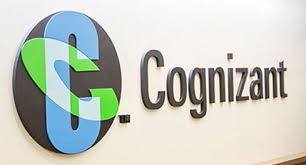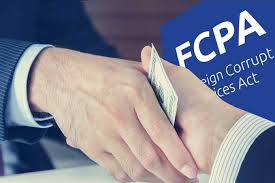Cognizant Technology Pays $25 Million for FCPA Violations and Earns Declination — Two Executives are Indicted for Criminal FCPA Violations (Part I of IV)

In the first corporate FCPA action of 2019, Cognizant Technology Solutions Company settled its long-running FCPA case, agreeing to pay the SEC $25 million. (SEC Settlement Here). At the same time, the Justice Department announced: (1) its declination under the FCPA Corporate Enforcement Policy (Here); and (2) the indictment of its former President and General Counsel for criminal FCPA violations (Here).
The charges arose from Cognizant’s bribery scheme to pay Indian government officials for permits, licenses and regulatory approvals. The criminal indictment and the primary violations center on the payment of a $2 million bribe through a third-party construction firm involved in the building of Cognizant’s campus in Chennai, India. The bribe was demanded by and paid to a government state official for the state of Tamil in India. The new campus was Cognizant’s largest facility in India.
Cognizant’s former president, Gordon Coburn and chief legal officer, Steven Schwartz, were indicted on 12 counts, including FCPA conspiracy, three substantive FCPA counts, seven counts of falsifying books and records and one count of circumventing and failing to implement internal accounting controls.

According to the criminal indictment, Coburn and Schwartz authorized the illegal payment of $2 million to an Indian foreign government official to secure a necessary permit to open a new office campus. To conceal the plan, Coburn, Schwartz and two other officers would make the bribery payment through a third-party construction firm and reimburse the third-party through inflated construction invoices at the end of the project.
The Justice Department’s decision to decline prosecution of Cognizant is curious (to say the least). Under the FCPA Corporate Enforcement Policy, a company that voluntarily discloses FCPA misconduct, fully cooperates and timely and appropriately remediates, earns a presumption of a declination “absent aggravating circumstances involving the seriousness of the offense,” including “involvement by executive management of the company in the misconduct.”
As the Justice Department noted, “despite the fact that certain members of senior management participated in and directed the criminal conduct at issue,” it had decided to decline criminal prosecution of Cognizant. Under the SEC settlement, Cognizant agreed to pay disgorgement and prejudgment interest of approximately $19 million and a penalty of $6 million.

In its declination letter, the Justice Department noted that Cognizant voluntarily disclosed the matter two weeks after the Board of Directors learned about the conduct; Cognizant conducted a thorough and comprehensive investigation; Cognizant’s full and proactive cooperation; the existence and effectiveness of its pre-existing compliance program, and the enhancement of its compliance program and financial controls; Cognizant’s termination and disciplining of employees and contractors; given the timing of the disclosure and cooperation, DOJ was able to prosecute individual offenders for their involvement in the conduct; and the fact that Cognizant agreed to disgorge $19.3 million as part of its settlement with the SEC.
















3 Responses
[…] Mike Volkov is running a five-part blog post series on the Cognizant Technology Solutions Corp FCPA enforcement action this week on his award-winning blog site Corruption, Crime and Compliance. You should check it out each day and you can begin by reading Part I, by clicking here. […]
[…] I have a four-part series on the enforcement action beginning today with a posting on Corruption, Crime and Compliance (Here). […]
[…] Mike Volvok takes a deep dive in a four part blog post series on Corruption, Crime and Compliance: Part 1, Part 2, Part 3and Part […]